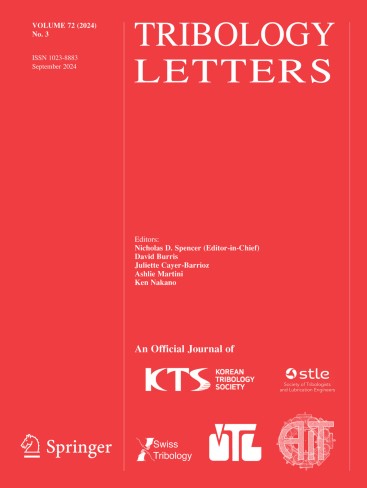The Corrosion Performance and Post-corrosion Wear Mechanisms of Fully Formulated Lubricants Introduced Varying Hydrogen
Abstract
Hydrogen internal combustion engines are transitional power devices for cleaner and low-carbon energy in transportation. However, high-temperature engine lubricants are prone to contact with hydrogen and oxygen, flowing through metal components during operation. The corrosive properties of the lubricants containing these gases and their tribological performance after prolonged contact with gases and engine metal parts have yet to be studied. This paper investigates the corrosive properties of fully formulated lubricants contacted with steel and metal coupons with air and varying flow rates of hydrogen introduced, as well as the tribological performance of the post-corrosion lubricants. The results show that as the hydrogen flow rate increases from 0 to 12 lph, the weight loss rates of copper and lead coupons decrease by 74.4% and 79.7%. Energy-dispersive spectroscopy and gas chromatography–mass spectrometry confirmed the reduction in oxygen content on the metal surfaces and the degradation of additives such as diphenylamine by hydrogen during corrosion. Compared to those without hydrogen, the friction coefficients of the lubricants after exposure to metal and steel coupons and 12 lph of hydrogen decreased by 50.4% and 46.6%. This significant improvement in lubrication performance is attributed to the reduced degradation of ZDDP and the formation of more zinc phosphate and zinc sulfide during friction in the hydrogen-introduced post-corrosion lubricants, compared to post-corrosion lubricants without hydrogen exposure. The research of corrosive and tribological performance characteristics can be applied to enhance the design of reliable engine tribo-pairs and improve the lubrication requirements of engine oil in hydrogen environments.
Graphical Abstract

 求助内容:
求助内容: 应助结果提醒方式:
应助结果提醒方式:


